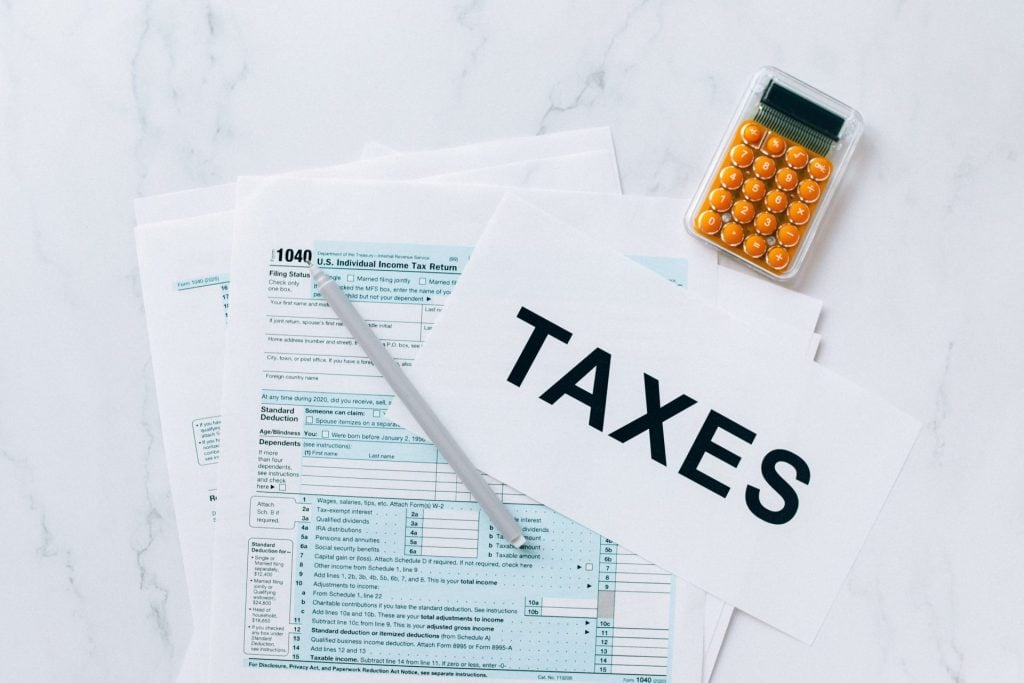BLOGS
“Ease Of Paying Taxes” Bill Might Soon Become Reality
The Makati Business Club (MBC), a prominent business group in the Philippines, is advocating for the immediate passage of a law that would simplify tax payment procedures for Filipinos. In a recent statement, the MBC expressed its hope that the government would enact an Ease of Paying Taxes Act (EOPT), which aims to enhance the taxpayer’s capacity for compliance, bolster the government’s finances and internal revenue, and facilitate the creation of more jobs.
The MBC extended its gratitude to the Senate Ways and Means Committee for approving the Ease of Paying Taxes bill (SB 2224). The group respectfully urged the Senate to pass the measure, emphasizing the importance of both houses reaching an agreement and enacting the law. The MBC highlighted the significance of an EOPT bill in making tax payments more accessible for all citizens, particularly micro and small enterprises. Simplifying the process would enable individuals and businesses to fulfill their duty of funding government infrastructure, programs, services, and national security.
Moreover, an EOPT law would enable businesses, especially micro, small, and medium-sized enterprises (MSMEs), to allocate more time and effort to job creation. Recognizing the leadership demonstrated by Representative Joey Salceda on EOPT, the MBC commended the House of Representatives for passing its counterpart, HB 8942, in September 2022. The group eagerly anticipated proposed changes to the National Internal Revenue Code (NIRC) or the Tax Code, including improved taxpayer classification into micro, small, medium, and large categories, each with a tax base and a specialized unit to cater to their specific needs. Additionally, they emphasized the need for simplified tax returns and processes for micro and small taxpayers.

Simplified Rules
The EOPT bill goes beyond simplifying tax payment procedures; the taxpayer’s bill also aims to implement simplified tax rules and regulations for easier compliance. One of the key changes proposed in the bill is the elimination of the distinction between the documentation and basis of sales and services subject to Value Added Tax (VAT). Currently, sales subject to VAT require invoices, while official receipts cover services subject to VAT. The bill proposes to streamline the basis of gross sales and documentation by only requiring VAT invoices for both sales and services, providing a more uniform approach.
Furthermore, the bill seeks to make administrative reforms by adjusting the P3-million VAT threshold, which was previously increased by the Train Law, to its present value not later than January 31, 2021, and every three years thereafter. This adjustment would be based on the consumer price index published by the Philippine Statistics Authority, ensuring that the threshold keeps up with inflation and that tax reform maintains its effectiveness.
In addition to simplifying VAT administration, the EOPT bill proposes a significant change to tax laws regarding the payment of taxes. It suggests allowing taxpayers to make tax payments before they are due, offering more flexibility in managing tax obligations. This means that taxpayers would no longer be required to pay taxes simultaneously with the filing of their returns, providing them with the option to settle their tax liabilities ahead of time.
The MBC expressed its anticipation for changes such as allowing taxpayers to file and pay their taxes in any revenue district office, not solely limited to their designated revenue district offices (RDOs). They also advocated for taxpayers to have the option to file and pay their taxes physically or electronically, as well as the ability to file and pay income tax in just the principal office of one RDO instead of multiple RDOs they operate in. The bill likewise seeks for the removal of the annual registration fee.
With a respectful tone, the MBC encouraged the Senate to pass a version of the bill after interpellation and necessary amendments. The organization acknowledged that constructive dialogue and revisions to the House bill are essential to ensure an effective EOPT law.

Bill of Rights
The EOPT bill seeks to establish reasonable criteria for taxpayer classifications, which include the taxpayer’s tax compliance with the amount and type of tax paid, etc.
Salceda has called on the Philippine Institute of Certified Public Accountants (Picpa) to collaborate in developing a comprehensive Taxpayer Bill of Rights. Recognizing the expertise of tax practitioners, Salceda believes that they are best suited to provide insights into improving processes and identifying areas where enhancements can be made. He eagerly seeks their input and suggestions to ensure that taxpayers’ rights are effectively safeguarded.
In support of this collaboration, Salceda intends to invite Picpa representatives to participate in congressional hearings to discuss concerns related to the 90-day Value Added Tax (VAT) refund system and the imposition of VAT on indirect exporters. He has assured that there is already a House resolution in place to invite Picpa representatives, and the House of Representatives is committed to taking action on this resolution.
By incorporating taxpayers’ rights into the Tax Code and establishing a taxpayers’ advocate office, the EOPT bill recognizes the importance of protecting taxpayers’ interests and ensuring their fair treatment. The inclusion of a Taxpayer Bill of Rights will provide a clear framework to uphold and enforce these rights, fostering transparency, accountability, and trust in the tax system.
Furthermore, the EOPT bill aims to address concerns related to tax paid by proposing changes to the current system. It seeks to streamline the 90-day VAT refund process, ensuring that taxpayers receive their refunds in a timely manner. This is a significant improvement that would alleviate the financial burden on businesses, allowing them to manage their cash flow more effectively.
In addition, the bill intends to review the imposition of VAT on indirect exporters. By examining this aspect of the tax system, the government aims to identify any areas where adjustments may be necessary to provide fair treatment for taxpayers engaged in indirect exporting activities.
The collaboration with Picpa reflects the government’s commitment to engaging with experts and stakeholders in crafting legislation that addresses the needs and concerns of taxpayers. By actively involving tax practitioners in the development and implementation of tax-related policies, the government can benefit from their insights and expertise, leading to more effective and equitable tax administration.

An Encouraging Tax Policy
Earlier this year, the Philippine Chamber of Commerce and Industry (PCCI) emphasized the importance of a tax policy encouraging taxpayers to fulfill their obligations rather than evade taxes. PCCI President George Barcelon stated during the’s general membership meeting in March that the government’s call for tax payment should be supported by a tax policy that motivates citizens to pay their dues. Barcelon highlighted the potential of the Ease of Paying Taxes Bill to provide a simple and convenient online system for taxpayers to fulfill their obligations.
The MBC and the PCCI’s push for an EOPT bill reflect the desire to improve tax administration and create a full tax administration system that is more efficient, transparent, and supportive of business growth. By simplifying tax payment procedures, the government can foster greater compliance and generate the necessary resources to fund critical infrastructure, social programs, and national security. The implementation of an improved tax system will not only benefit the government but also allow businesses, especially MSMEs, to focus on expanding and creating employment opportunities.
Why Does Tax Rates and Tax Administration Matter?
In order to promote economic growth and progress, governments must establish reliable and sustainable funding sources for social programs and public investments. These programs, which encompass vital sectors such as healthcare, education, and infrastructure, play a pivotal role in achieving a thriving, well-functioning, and organized society. Fulfilling these objectives necessitates the government’s ability to generate revenue through taxation.
Taxes not only finance public goods and services but also form a fundamental component of the social contract between citizens and the economy.
An effective tax administration plays a crucial role in promoting the formal registration of businesses, which in turn contributes to the expansion of the tax base and the generation of higher tax revenues. Conversely, an unfair and unpredictable tax administration can undermine the credibility of the tax system and diminish the government’s legitimacy. During the 1990s in numerous transitioning economies, the failure to enhance tax administration alongside the implementation of new tax systems led to an uneven application of taxes, rampant tax evasion, and lower-than-anticipated tax revenue.
Suggested Read: Filipino Spending power Rises As TRAIN Law Rate Decrease
Suggested Read: How VAT Refund And E-Visa Can Boost Tourism
Suggested Read: Taxes When Buying A House In The Philippines
Suggested Read: Zonal Value: Everything You Need To Know
Suggested Read: Fintech: The Future Of Real Estate















